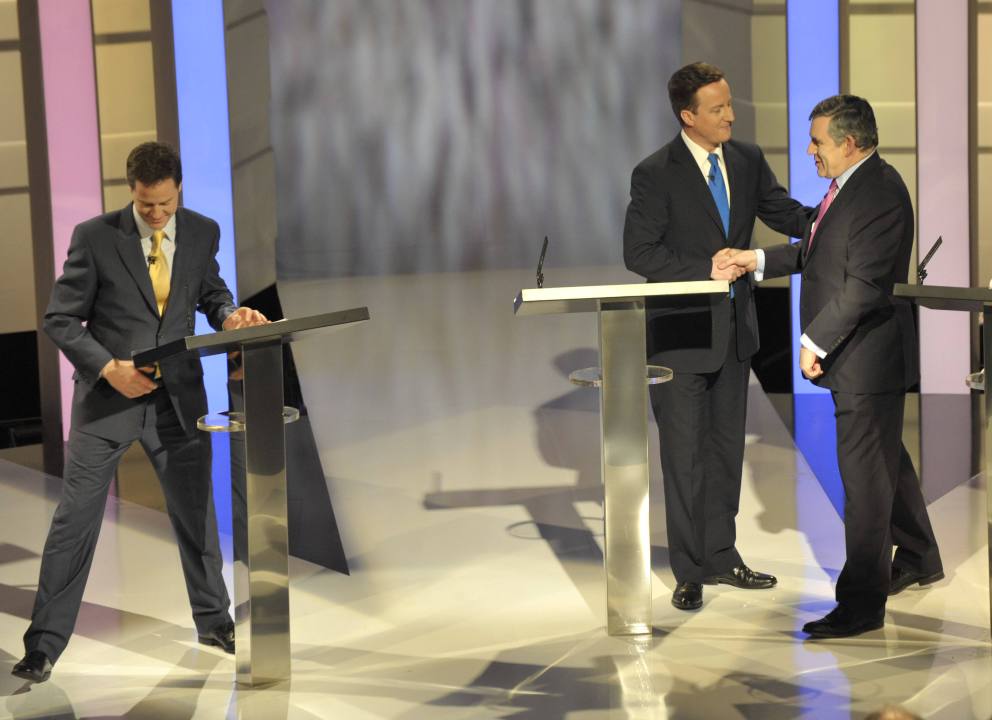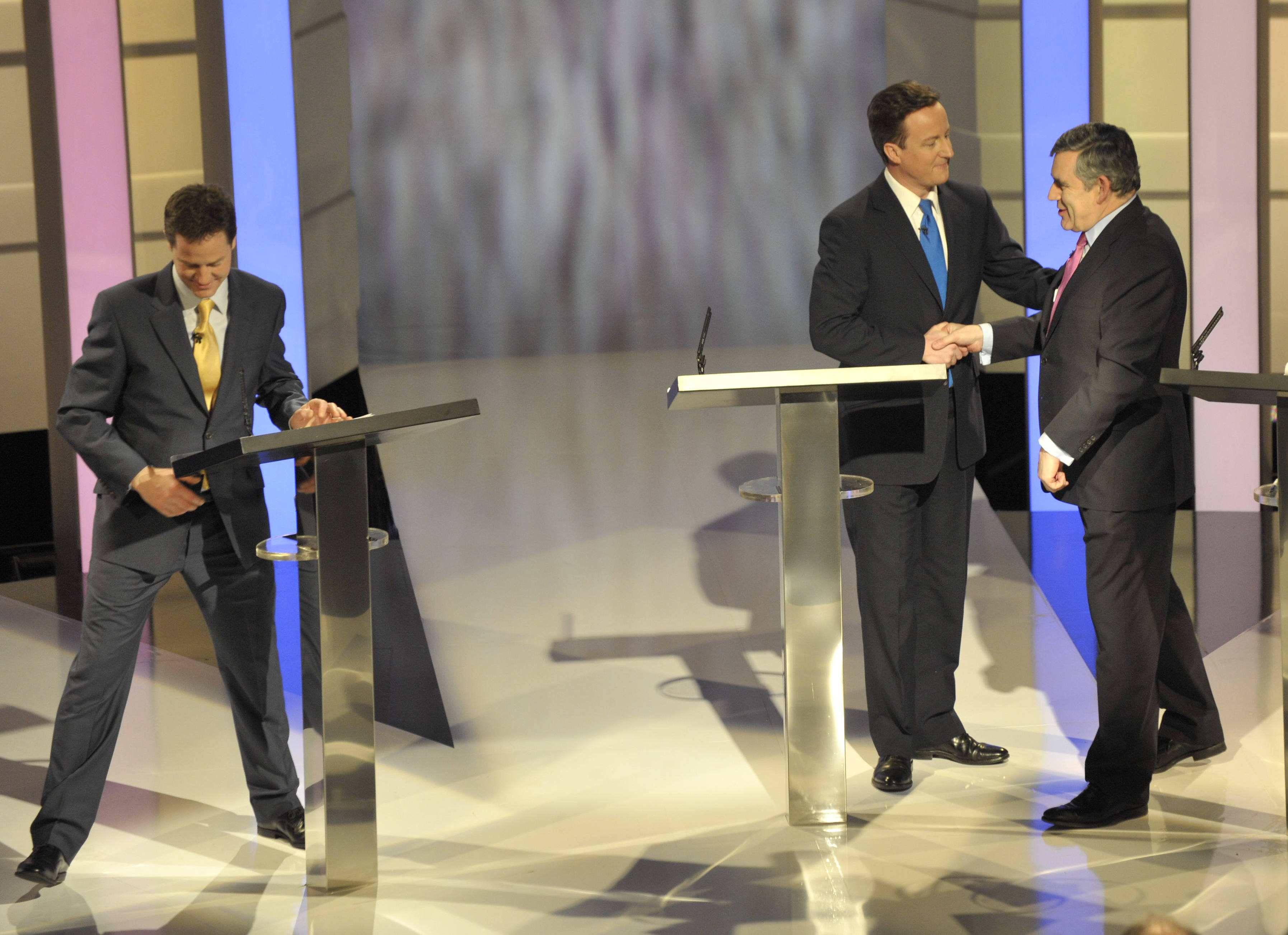 The question is: how much has really changed after last night? And the answer is
hard to pin down. There are the plastic, surface changes, of course. Nick Clegg may now be recognised by more that one-third of the nation. His party will probably come under greater scrutiny from the media and
his opponents. And the leaders’ debate is here to stay; a defining feature of this election which will become a standard feature of future contests.
The question is: how much has really changed after last night? And the answer is
hard to pin down. There are the plastic, surface changes, of course. Nick Clegg may now be recognised by more that one-third of the nation. His party will probably come under greater scrutiny from the media and
his opponents. And the leaders’ debate is here to stay; a defining feature of this election which will become a standard feature of future contests.
But what about deeper change? Well, I can understand the argument – made punchily by Gideon Rachman here – that this will increase the likelihood of a hung Parliament. That’s probably true. But there’s also a chance that it might help the Tories pull clear of their opponents. It all depends on which party the Lib Dems suck voters from and, more importantly, in which marginals they do so. Or, of course, there’s always the possibility that people were impressed with Clegg last night – but won’t change their vote as a result. Either general ambivalence, or less convincing performances in the two remaining debates, could drag the Lib Dem leader down from the stratosphere again. We will need to wait for more polls – including the poll of polls that is the election – to find out.
And then there’s the little matter of whether last night will help rejuvenate our democracy. On that front, the main thing which struck me about the debate was its civility and its clarity. Sure, there were confrontations and obfuscations aplenty. But, on the whole, this was politics played at a more edifying level than in PMQs each week, and several worlds away from the pervasive grubbiness of Westminster. If people tuned in, then they may well have been impressed by what they saw. It all depends on whether they tuned in – and we’ll have viewing figures shortly.







Comments